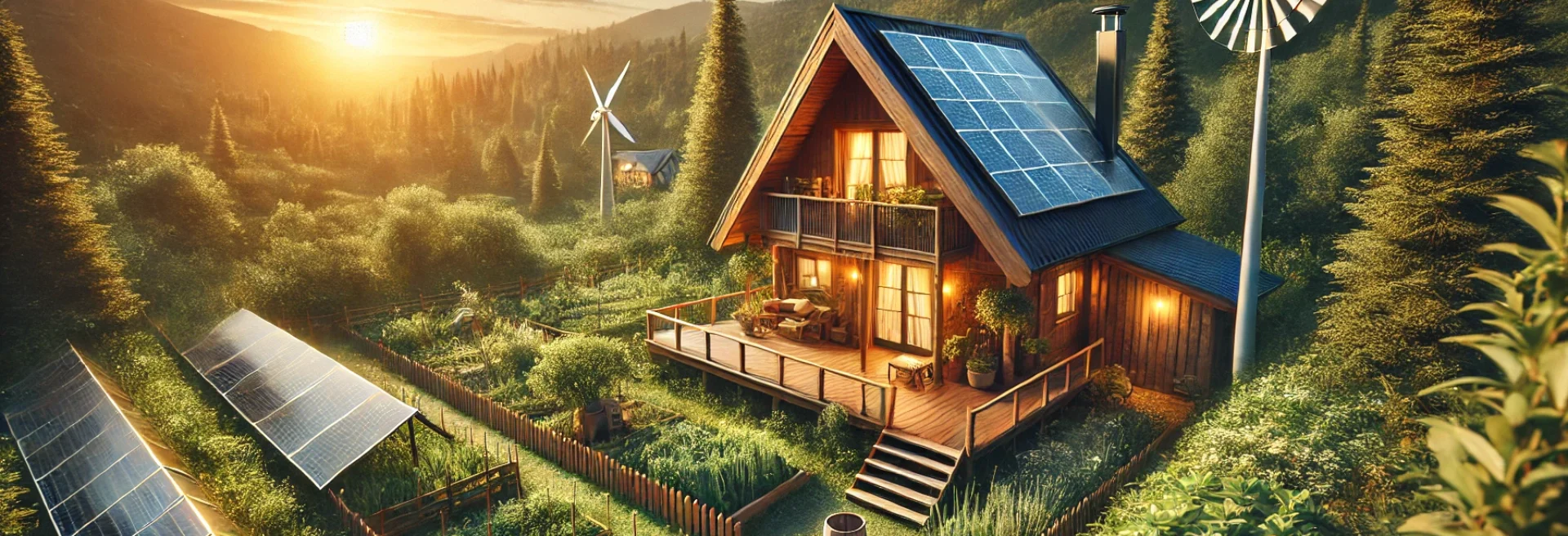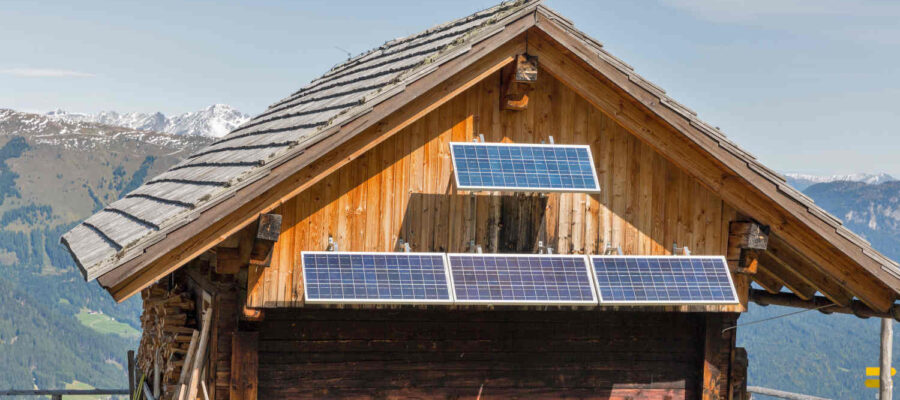Living off the grid is a lifestyle choice that prioritizes self-sufficiency and sustainability by disconnecting from traditional utilities like electricity, water, and gas. Among the numerous options available for generating power off the grid, solar energy stands out as an ideal solution due to its reliability, scalability, and eco-friendliness. This article delves into how solar power is revolutionizing off-grid living and highlights the many benefits it offers.
How Solar Power Works for Off-Grid Living
Solar power systems harness energy from the sun using photovoltaic (PV) panels, converting sunlight into electricity. For off-grid living, the system typically includes:
- Solar Panels: The primary component that captures sunlight and converts it into direct current (DC) electricity.
- Charge Controllers: Regulate the electricity flow to the battery storage system, preventing overcharging.
- Battery Storage: Stores excess electricity produced during the day for use during the night or cloudy weather.
- Inverters: Convert stored DC electricity into alternating current (AC) for powering household appliances.
- Backup Generators (Optional): Provide additional power during extended periods of low sunlight.
Off-grid solar systems are designed to operate independently, allowing users to generate, store, and manage their own electricity.
Benefits of Solar Power for Off-Grid Living
1. Energy Independence
One of the most significant advantages of solar power is the freedom it offers from reliance on external utilities. Off-grid solar systems enable homeowners to produce and manage their own electricity, ensuring consistent power even in remote locations. This independence is particularly valuable in areas with unreliable grid access or frequent power outages.
2. Cost Savings
While the initial installation of a solar power system requires an upfront investment, the long-term savings are substantial. Once the system is operational, sunlight is free, meaning there are no recurring electricity bills. Additionally, the falling costs of solar panels and batteries have made off-grid solar systems more affordable than ever.
3. Environmental Benefits
Solar power is a clean, renewable energy source that reduces dependence on fossil fuels, lowering greenhouse gas emissions. By using solar energy, off-grid households contribute to environmental conservation and combat climate change. Unlike gas-powered generators, solar panels operate silently and produce no air or noise pollution.
4. Scalability and Customization
Solar power systems can be tailored to meet individual energy needs. Whether powering a small cabin or an entire homestead, solar setups are scalable. Users can add more panels, batteries, or inverters as their energy requirements grow, ensuring a flexible and future-proof solution.
5. Low Maintenance
Solar power systems are designed to be durable and require minimal maintenance. Panels typically have a lifespan of 25-30 years and need occasional cleaning to maintain efficiency. Modern lithium-ion batteries, commonly used in off-grid setups, are also long-lasting and require little upkeep.
6. Reliable in Remote Locations
Solar power systems are especially beneficial for those living in isolated areas where grid infrastructure is unavailable or costly to establish. With the sun as a virtually limitless energy source, solar panels can generate electricity anywhere, making them ideal for remote cabins, farms, and emergency shelters.
Designing an Off-Grid Solar Power System
Assess Energy Needs
The first step in designing a solar power system is determining your household’s energy consumption. Identify the appliances you plan to power, their wattage, and how long they will run daily.
Choose the Right Components
- Solar Panels: Select panels based on energy needs and the amount of sunlight your location receives.
- Battery Capacity: Opt for batteries with sufficient storage to meet nighttime and emergency requirements.
- Inverters and Controllers: Ensure they are compatible with the system’s size and your appliance needs.
Optimize Placement
For maximum efficiency, solar panels should be installed in areas with unobstructed sunlight. Adjustable mounts can improve energy capture by allowing users to tilt panels according to seasonal sun angles.
Plan for Redundancy
Incorporating backup systems, such as a wind turbine or a gas generator, can provide additional security during prolonged cloudy periods or system maintenance.
Challenges and Solutions
1. Initial Cost
Although solar power systems require significant initial investment, government incentives, tax credits, and financing options can offset costs. Additionally, lower costs for panels and batteries have made solar energy more accessible.
2. Weather Dependence
Solar power generation fluctuates with weather and seasonal conditions. Installing a larger battery bank or integrating hybrid systems (e.g., solar and wind) can ensure consistent power supply.
3. Storage Management
Battery systems degrade over time and require proper sizing and management. Choosing advanced lithium-ion batteries or exploring alternative storage solutions like flow batteries can address this issue.
Real-Life Applications
- Remote Homesteads: Many off-grid homeowners rely on solar energy to power lighting, refrigeration, water pumps, and communication devices.
- Emergency Preparedness: Solar power systems provide reliable electricity during natural disasters or grid failures.
- Sustainable Farming: Farmers use solar energy to operate irrigation systems, power tools, and run equipment in areas without grid access.
Conclusion
Solar power is a game-changer for off-grid living, offering a sustainable and reliable energy solution for self-sufficient households. Its benefits, including energy independence, cost savings, and environmental friendliness, make it an attractive option for anyone seeking to disconnect from traditional utilities. With advancements in technology and decreasing costs, off-grid solar systems are becoming increasingly accessible, empowering individuals to embrace a resilient and eco-friendly lifestyle.
By harnessing the power of the sun, off-grid living is not just a choice but a step toward a sustainable and self-reliant future.


